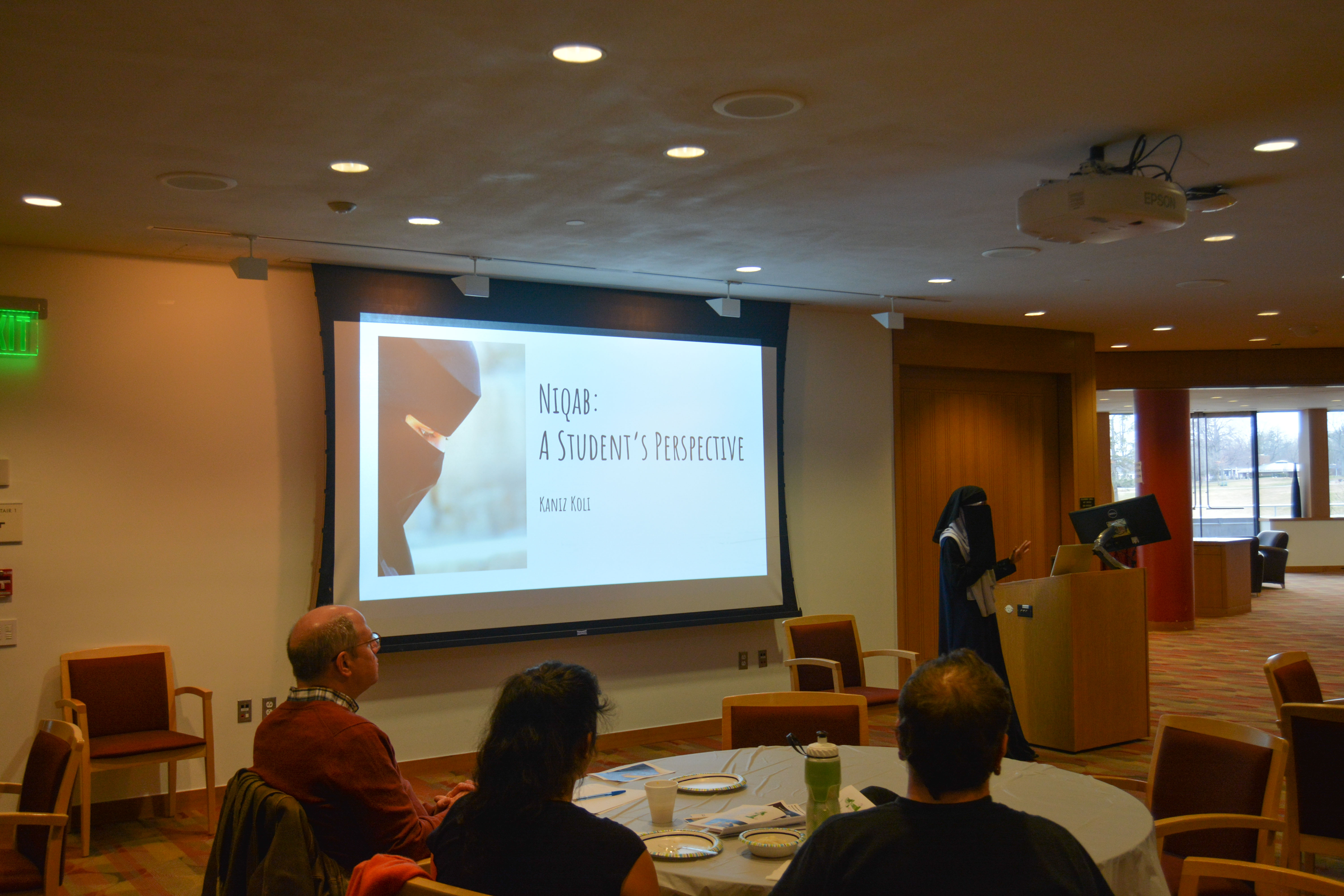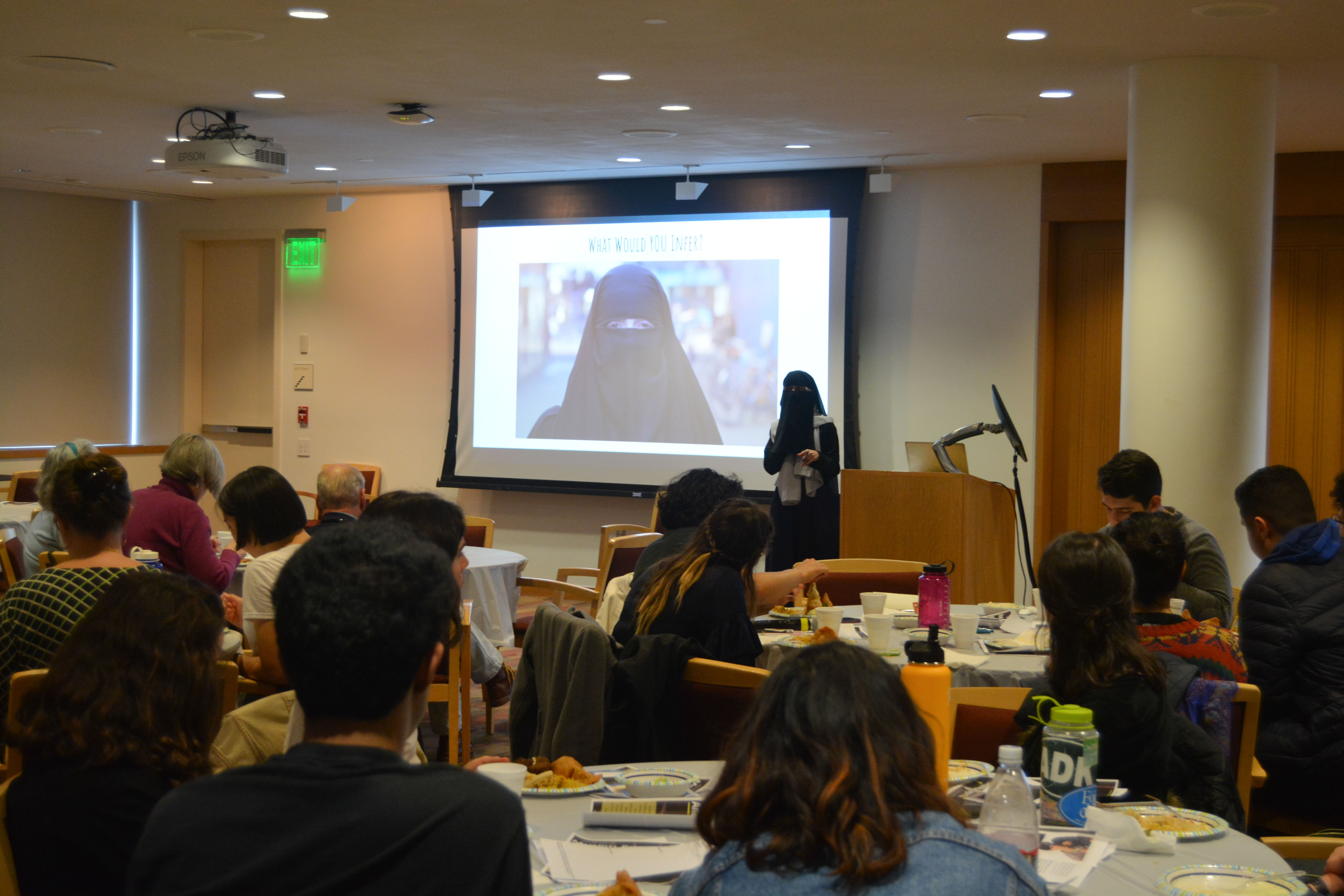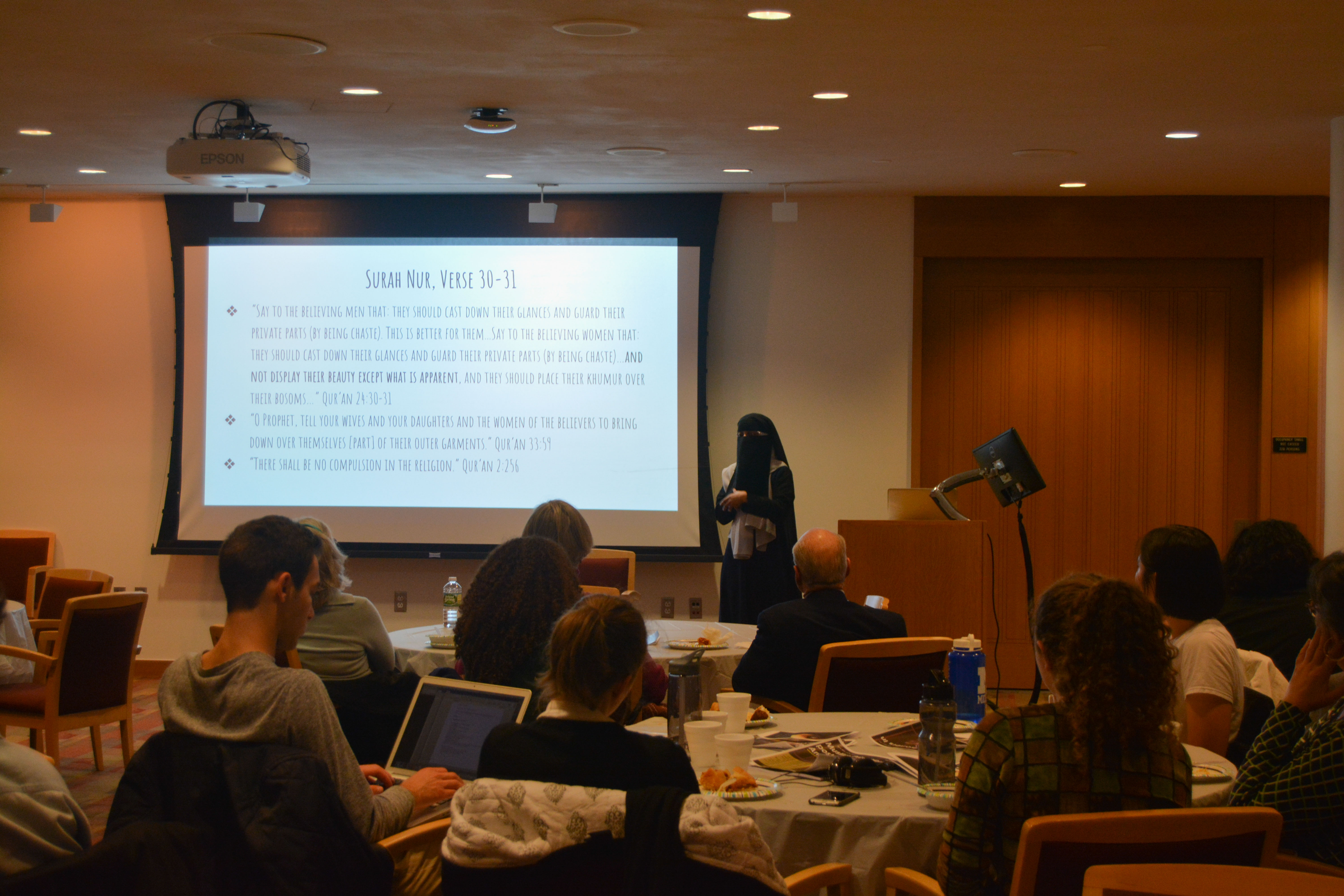
Mohammed Alneyadi, Staff Photographer
On Wednesday, March 28, Kaniz Koli, a 22-year-old recent graduate of the University of Connecticut, shared her experiences of wearing a niqab in America. The lecture, titled “Why I Wear the Burka: The Story of a Student in America,” offered Koli’s perspective on the meaning of wearing the niqab.
“I just want to share with you guys my way of life,” Koli prefaced her speech. “I’m not here to enforce my views, or persuade anyone to dress the way I dress.”
In her talk, Koli confronted stereotypes surrounding women who wear burkas or niqabs head-on, asking people to describe their first thought seeing a person dressed in a burka or niqab walking down the street.
“That you were a victim of a patriarchal culture,” one responded.
“That you’re very religious,” another answered.
Two others described their admiration for the women wearing a burka and niqab in America.

Mohammed Alneyadi, Staff Photographer
Koli challenged the notions of wearing a burka and niqab with her own stories of traveling to Cameroon with friends, skydiving, and her expertise in tossing pizza dough after working at Domino’s. Koli did not have a deeply religious upbringing, and didn’t start wearing the niqab until her sophomore year of college, going against the advice of her family. For many students, it was a fresh perspective, and Koli came to see the niqab as important to her faith and identity.
A niqab is a veil worn by by some Muslim women that covers the face, except for the eyes. A different garment, the burka, covers the entire body.
“I definitely had a lot of assumptions about people who wear a niqab that [Koli] changed my perspective on,” said Sophie Talcove-Berko ’21.
“When you see someone wear something so starkly different from what you’re used to, they become defined by that one thing,” said Marni Loffman ’19.
The talk also gave students a newfound understanding regarding the meaning of the burka and niqab.
“I think it’s not really a black or white situation,” said Mohsin Minhas ’20. “It’s very nuanced.”
“It made me think of the differences between a Muslim woman who chooses to wear a niqab later in life versus one who was given it from birth and surrounded by people who were wearing that and the comparative experiences between the two,” Loffman said.
Koli also addressed women who held different experiences than her when wearing a niqab or burka.
“Just because for me it wasn’t oppression, it doesn’t mean that oppression isn’t happening,” Koli said. “But I want you guys to be clear, that oppression isn’t from Islam. That’s people going against Islam.”

Mohammed Alneyadi, Staff Photographer
Koli then described the oppression as symptomatic of a cultural problem, and one that has not historically been unique to Islam.
While students were intrigued to hear a woman proudly explain what the niqab means to her, many were unaware how groundbreaking such a discussion was. According to Melisa Olgun ’20, Koli was the first niqabi woman to speak at the University, and possibly at any public forum in the state. In introducing Koli, Olgun described the event as a response to the lack of attention given to the perspectives of Muslim women in American media.
“It is important we honor niqabi burka-wearing women voices as they are often voiceless due to our media’s desire not to let them tell their own story,” she said.
Koli’s final message focused on overcoming differences, describing how some of her colleagues still question her choice to wear a niqab, though she emphasized that they respect her nonetheless. Similarly, despite her opposition to homosexuality, she says she would be the first to protect members of the LGBTQ community should they be under attack.
“It’s okay to disagree and still be friends,” Koli said. “We can be different, but still move forward together.”
Koli also advocated against responding to oppression by banning the burka. She saw this as a slight against those who value the burka and niqab as essential to practicing and expressing their faith and identity.
“It means the world to me.” Koli said. “If I’m happy, why should anything else matter?”
Mason Mandell can be reached at mjmandell@wesleyan.edu or on Twitter @MasonMandell.